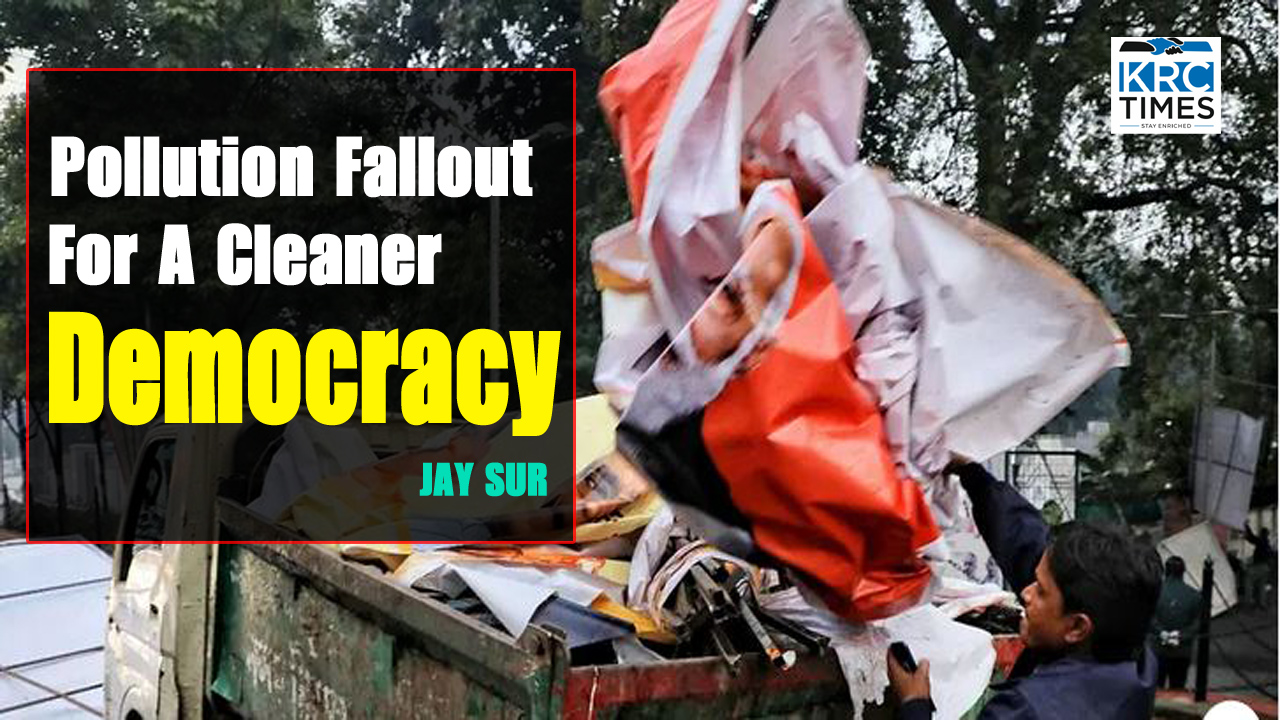This post-election scenario raises important questions about the responsibility of political parties in managing the aftermath of their campaigns
 Jay Sur
Jay Sur

Election campaigns in India are a vibrant and dynamic showcase of democracy in action. During these times, cities and towns are adorned with an array of posters, banners, placards, and flexi banners, all promoting various political candidates and parties. These visual displays create a festive atmosphere, drawing the public’s attention to the significance of their participation in the electoral process.
However, once the elections conclude, these materials often remain in place, contributing to significant visual pollution across the country. The remnants of the campaign become an eyesore, cluttering public spaces and marring the urban and rural landscapes. This post-election scenario raises important questions about the responsibility of political parties in managing the aftermath of their campaigns.

Visual Pollution and Environmental Impact : The visual pollution caused by leftover campaign materials is not merely an aesthetic issue. It also reflects a deeper environmental concern. Tons of trees are sacrificed to produce the paper and materials needed for these posters and banners. The production and disposal of these materials have a substantial ecological footprint, contributing to deforestation and waste management challenges.
In addition to environmental damage, the clutter of campaign materials can hinder city cleanliness efforts and affect public morale. The sight of decaying posters and banners can be a stark reminder of the temporary nature of political promises and the lasting impact of negligent practices.

A Call for Political Accountability : Political parties should bear the moral responsibility for cleaning up after their campaigns. It is not just a matter of aesthetics but a commitment to the community and environment they aim to serve. Organizing cleanup drives post-election should be a standard practice for all political entities, showcasing their dedication to responsible governance and civic duty.

Moreover, shifting the focus towards more sustainable campaign methods can significantly reduce the negative impact. Digital campaigns, for instance, offer a greener alternative. Social media platforms, websites, and electronic advertisements can effectively reach voters without the need for physical materials. This not only conserves natural resources but also ensures that public spaces remain uncluttered.
Benefits of Digital Campaigns
- Environmental Conservation – Digital campaigns drastically reduce the need for paper and other materials, conserving trees and reducing waste.
- Cost-Effectiveness – Online advertising and social media outreach can be more cost-effective than traditional methods, saving precious public money.
- Broader Reach – Digital platforms can reach a wider audience, including younger, tech-savvy voters who may not engage with traditional campaign methods.
- Real-Time Engagement – Digital campaigns allow for real-time interaction with voters, enabling immediate feedback and more dynamic campaigning.
The Need for Change : The transition to more sustainable campaigning methods requires a collective awakening to the long-term benefits. Political parties, election commissions, and the public need to recognize the importance of reducing visual and environmental pollution. Legislative measures could also support this shift, mandating the cleanup of campaign materials and promoting digital alternatives.

In conclusion, while the vibrant displays of election campaigns add to the democratic fervor in India, it is crucial to address the aftermath responsibly. Political parties should lead by example, ensuring the timely removal of campaign materials and embracing more sustainable practices. This shift will not only enhance the beauty of our cities but also preserve our environment for future generations.
When will we wake up to this need for change? The answer lies in our collective resolve to prioritize sustainability and responsibility in all aspects of our democratic processes.



Wonderful article,yes we all should protest for it. Well written and given good solutions…we must think about environment and should protect it.